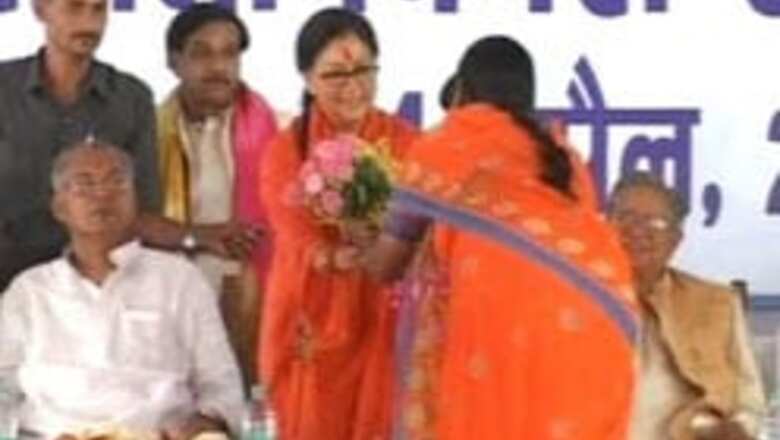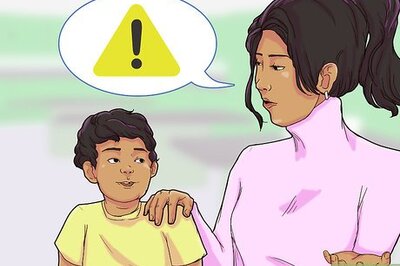
views
Jaipur: Polling to elect a 200-seat Rajasthan Assembly that began on Thursday morning picked up briskly amid tight vigil by policemen following heightened security concerns in the wake of the Mumbai terror attacks.
Long queues were seen at most polling stations soon after balloting started at 8 am. Election officials put the preliminary estimate at over 12 per cent in the first two hours.
"According to available information, around 12 per cent of voters had exercised their franchise by 10 am. The polling is expected to pick up in the afternoon. Voting has been peaceful", an election department official said.
At some places, there were reports of technical snags in the electronic voting machines (EVM), which had to be replaced.
Rajasthan's Governor S K Singh had to wait for over 25 minutes as the EVM developed a snag and had to be changed.
Former chief minister Ashok Gehlot, Rajasthan chief minister Vasundhara Raje, and former state president of the Congress B D Kalla were among the first to cast their votes.
"The voting is in progress at 42,212 polling stations spread across the state. We have made elaborate security arrangements for peaceful polls," an election official said.
Over 8,400 polling stations have been declared sensitive and security has been beefed up in these areas.
Over 360 lakh people, including 172 lakh women, are eligible to vote. There are 2,193 candidates, including 154 women, in the fray.
Thursday's polling will decide the fate of Chief Minister Vasundhara Raje of the Bharatiya Janata Party (BJP), former chief minister and Congress leader Ashok Gehlot, state Congress president C.P. Joshi, Gujjar community leader Prahlad Gunjal and Meena leader Kirori Lal Meena.
The Congress is fighting all 200 seats, the BJP 193 and the Bahujan Samaj Party (BSP) 199.
The BJP, under Raje's leadership, is trying for a second consecutive term in power. At present, the BJP has 121 legislators and the Congress 53. This time the contest seems to be heading for a nail-biting finish as both major parties are plagued by rebels and factionalism.
Uttar Pradesh Chief Minister Mayawati's BSP is also trying to make a dent. The party had won only two of the 124 assembly seats it contested in 2003. However, it increased its vote per centage from 2.17 per cent in 1998, when it fought for the first time in the state, to 3.98 per cent in 2003.
During the poll campaign, the BJP raised the issue of development that Rajasthan has seen in the last five years, while the Congress talked about corruption. The BJP also accused the Congress-led government at the centre of being unable to tackle terrorism and inflation.
Political analysts seem divided over the outcome.
"No one party seems extremely popular, so it is difficult to predict. The fight will be close with rebels creating problems for both the BJP and the Congress," said Vijay Sharma, a political analyst.
The BJP might face more problems than the Congress as two of its leaders - Kirori Lal Meena and Vishwendra Singh - have gone against the party. While Meena is fighting as an independent from two constituencies, Singh has joined the Congress and is fighting from the Deeg-Kumher constituency.




















Comments
0 comment